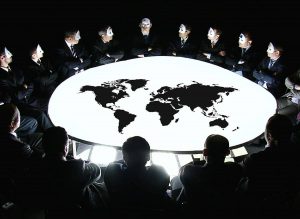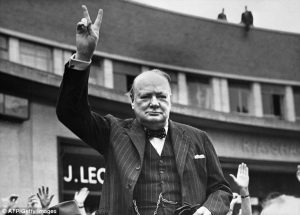The Imperial Political Elite Establishment’s Strategies for Protecting British Power

The Imperial Political Elite
Establishment’s Strategies for Protecting
British Power and Interests in the Process of
the Decolonization of the British Empire After WWII.
In this article I shall be concentrating on the policy ideas and political attitudes of the British political elite during the decolonisation process, which led to the setting up of an institution incorporating the new nations and states, or the Modern Commonwealth, (excolonies) in Africa and Asia post-1945.
The run-down of empire also produced other responses by the political elite, to safeguarding British interests, which will be elucidated. However, I start my investigation by looking at the machinery through which the political elite responded to the situation and circumstances bringing about decolonisation. This brief outline will enable us to see that the policies were not made in a short period nor were they made by a single individual without any checks and balances. In fact, they went through a complex process before they came to mature.
The Organization of the United Kingdom Central Government: The Policy Making Machinery.
If a government relies only on military power, that government will be at a considerable disadvantage. It is, therefore, important for all those who hold power to have their position recognised as legitimate (rightful) by those over whom they have power. In modern society legitimacy will be achieved through a competitive party system based on elections (one person-one vote). In a country with a monarchy, democracy can only be achieved if the system is a constitutional monarchy such as the United Kingdom. In 1963 two American political scientists (Professors Almond and Verba) made a survey of what they called “the civic culture” in five countries. These were the U.S.A, Britain, the Federal Republic of Germany, Italy and Mexico. In the course of this they conducted opinion surveys on certain relevant topics across these five countries. In answer to the question as to “which aspects of national life they took most pride in” they found that “in Britain, 33% of the respondents named their government arrangements. Additionally, more than a half believed that civil servants would give their individual problems ‘serious consideration’ and three quarters believed that the police would also. Two-theirs of those questioned believed further that it was in their power to affect a national policy and four-fifths of the respondents believed that the civil servants would treat them fairly, and no less than nine-tenths believed that the police would.”1
It could be said that, by international standards, those proportions are very impressive. In Italy, on the other hand, only 21/2% of the population named their governmental arrangements; and, in Germany, only 4%. The liberal-democratic type of government in Great Britain is an outstanding example. The system is well-established and has been for generations, and so are the individual governments generated and sustained by it. Although the executive enjoys wide authority and extensive administrative capabilities, nevertheless, as a whole, government is representative of public opinion, and libera in its concern for minorities. There are two reasons for this long-enduring stability of the regime: firstly, due to the relatively homogeneous nature of the society, secondly, and most importantly, as a result of the party system characteristics.
“Parties provide the Prime Minister and the government of the day, together with the leader of the Opposition and his Shadow Cabinet. They are the agents that ensure parliamentary support for the government. They act as spokesmen and as channels of communication for the numerous pressure groups in society.”2 At intervals they provide the competing teams in general elections. At the same time, they link the electorate with their Members of Parliament and consequently with Parliament and the government itself.



